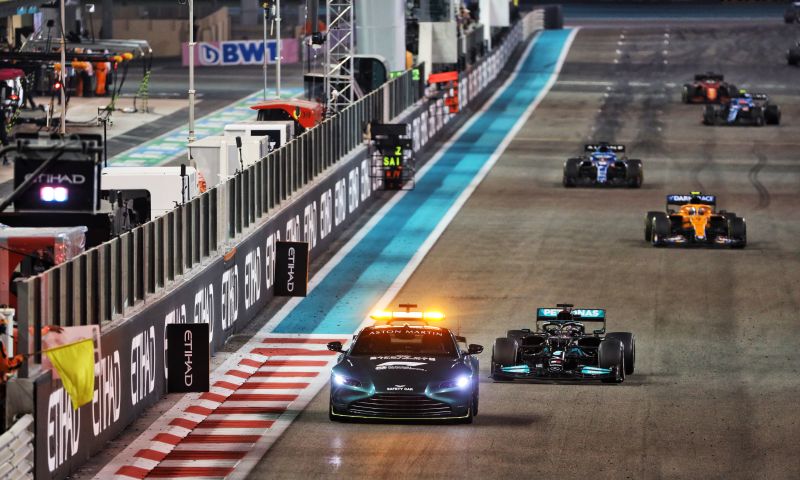'Americans may not be so understanding if this continues'
General

- Ludo van Denderen
Although the Canadian Grand Prix was among the five best-watched Grands Prix ever on US television channel ABC (the channel broadcasts only a handful of races a year), the overall trend for Formula 1 in America is not as positive as it was a few years ago. The Miami race was not sold out this time and the number of television viewers was also lower than in the debut year, 2022. A stagnation (or even decline) in Formula 1's popularity in the United States is looming, the Associated Press (AP), the world's leading news agency, also believes.
Americans love drama and action. That is why NASCAR is so popular. The drivers do not hesitate to ram each other off the steep ovals, resulting in violent crashes. In NASCAR, there are ten different winners in sixteen races so far this season, the unpredictability is enormous and it is still America's most popular racing class. In Formula 1, there are two different victors this year: Max Verstappen and Sergio Perez, both from Red Bull Racing.
Admiration in the paddock
Within Formula 1, there is mostly admiration for the work of Red Bull, which has by far the best car and driver. Even among Verstappen and co's biggest detractors: "It’s not a frustration anymore if it ever was," said Lewis Hamilton in Canada, for example. "You know how it is, and you know what you’re faced with, and there’s nothing I can do about their amazing performance. It’s likely that they will win every race, moving forwards, this year, unless [Aston Martin and Mercedes] put a lot more performance on the cars, or their car doesn’t finish."
I am sure there is also admiration for Red Bull's performance in the United States, but the public there is impatient. A little spoiled by the storylines in Drive to Survive (which often don't do full justice to the truth), Americans are expecting a NASCAR 2.0. Press agency AP wrote the following in response: "But here's F1's dirty little secret: the racing has never been great and 2021 was an anomaly of a season."
America's love for Formula One could therefore just be very short-lived. AP talks of 'a fickle fanbase', which drops out if the action on the track does not improve. "F1 excels at drama, cutthroat politics and backstabbing, but when it doesn't translate into an exciting product, the attention span will be tested."
'No spending money on quickly decided races'
To win back the lost audience, the Miami Grand Prix, for example, wants to move the start time to the evening hours. That should produce pretty pictures, give the race an extra dimension and thus attract an audience. "But if Verstappen and Red Bull continue to dominate the way they are, it won't matter. Few want to shell out the cash required to see a race decided in the first turn of the first lap.."
Not that Formula is totally uninteresting, AP does not want to say that at all. "The F1 paddock understands the ebbs and flows of the series and recognizes that some of the fiercest racing is mid-pack. Americans may not be so understanding if this continues."

